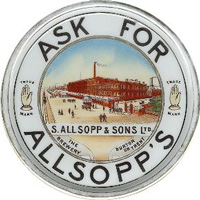Alright, it’s possible I may have exaggerated just slightly with my headline claim that beer will cure the looming oil crisis. But it’s not impossible so therefore it’s technically achievable, however implausible. Anyway, here’s the idea in a nutshell. Scientists working at new project, a part of which is the Manchester Centre for Integrative Systems Biology at The University of Manchester, will be using the recently discovered knowledge that “networking in living cells may determine whether a cell causes diabetes or cancer or helps to maintain our health” to figure out how to modify the cell’s behavior so it tends toward being healthy instead of causing cancer. This emerging field is known as Systems Biology. Here’s the part in Medical Science News that caught my eye:
Using this approach Manchester researchers working on the Systems Biology of Microorganisms (SysMO) research programme will also drive a project that looks at how the yeast used in the production of beer and bread can be turned into an efficient producer of bioethanol.
That sounds like they’re trying to figure out how to have beer yeast create fuel, doesn’t it? How cool would it be if brewers could use the same yeast to create both the beer and the gas for the truck that delivers it? Fill ‘er up with Sierra Nevada, please.

